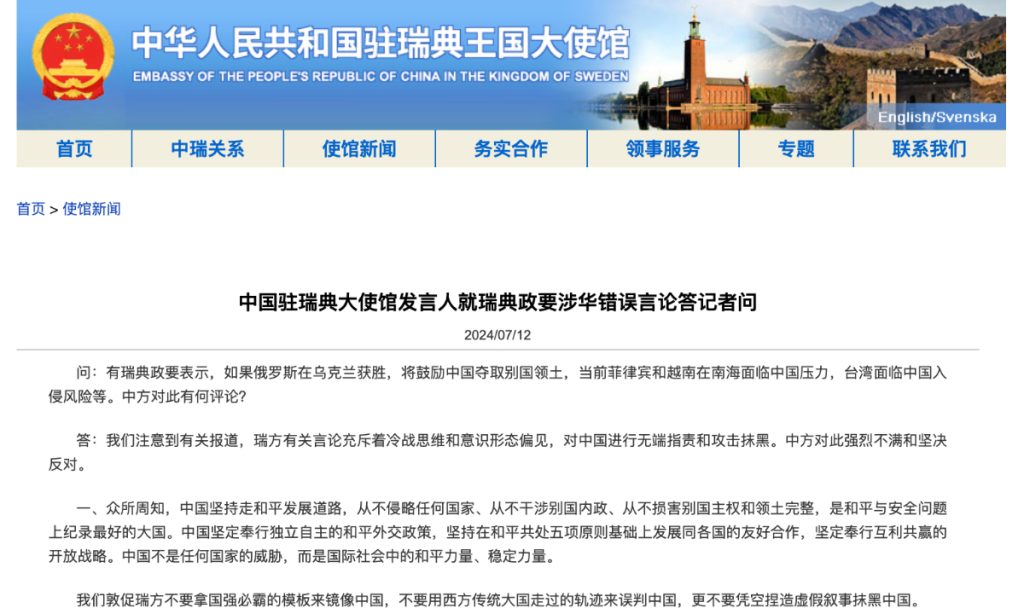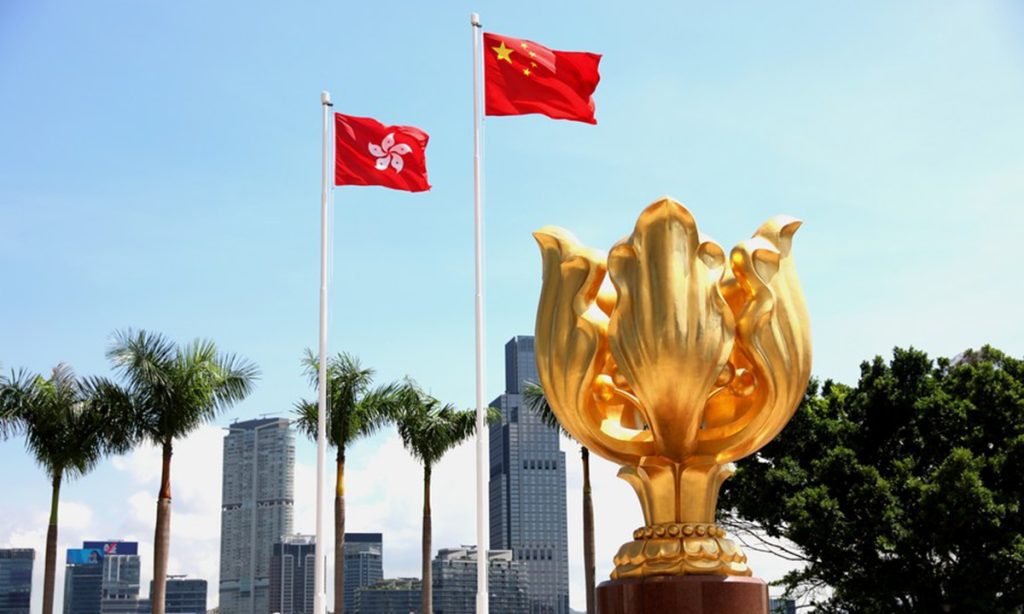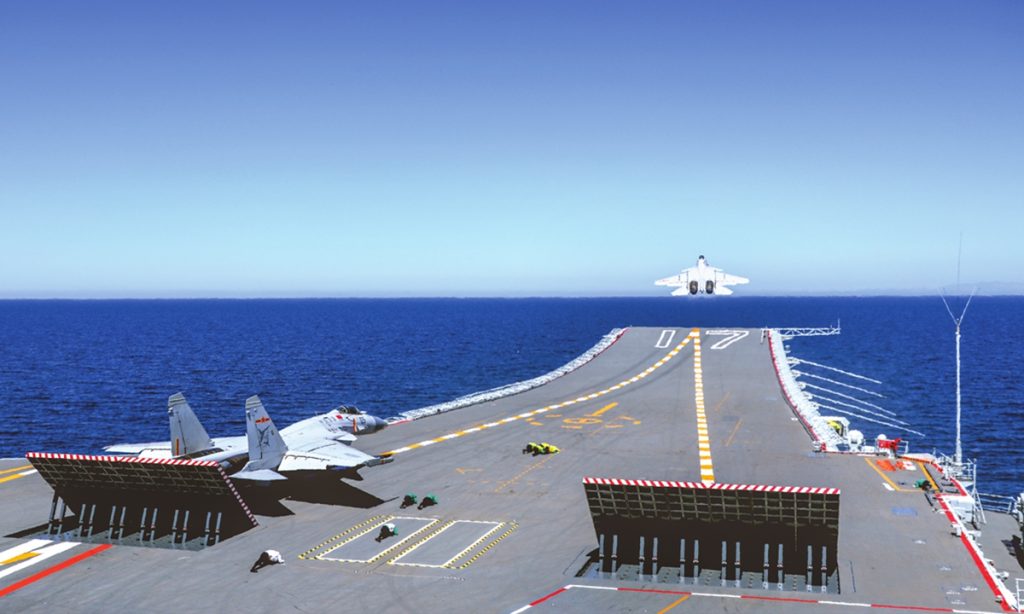Chinese Embassy refutes wrongful China-related claim by Swedish politicians, urging Sweden not to fabricate false narratives

The Chinese Embassy in Sweden refuted on Friday the erroneous remarks made by some Swedish politicians related to China on the Russia-Ukraine conflict, South China Sea issue and Taiwan question. The Chinese Embassy urged Sweden not to mirror China with the template of "a major country must be hegemonic," not to misjudge China by the trajectory taken by the Western powers, and not to fabricate false narratives designed to smear China.
According to the embassy, some Swedish politicians have stated that if Russia wins in its conflict with Ukraine, it will “encourage China to seize territory from other countries.” They also smeared China by claiming that the Philippines and Vietnam “are facing pressure from China” in the South China Sea, and that the island of Taiwan “is at risk of invasion” from mainland.
The Chinese Embassy refuted the attacks, clarifying that the Swedish side's remarks are filled with Cold War mentality and ideological prejudice, making baseless accusations and attacks targeting China, which China strongly protests and firmly opposes.
It is known to all that China has adhered to the path of peaceful development, has never aggressed against any country, never interfered in the internal affairs of other countries, and never undermined the sovereignty and territorial integrity of other countries. China has always been committed to an independent foreign policy of peace, adhered to developing friendly cooperation with other countries on the basis of the Five Principles of Peaceful Coexistence, and firmly pursued the strategy of openness, development and mutual benefit. China is not a threat to any country, but a force for peace and stability in the international community, a spokesperson from the Chinese Embassy said.
The spokesperson reiterated that there is only one China in the world, and Taiwan has never been a country, but an inseparable part of Chinese territory. The one-China principle is a universal consensus in the international community and a basic norm in international relations, and it is also the political foundation for China to establish and develop diplomatic relations with all countries, including Sweden.
The Taiwan question and the Ukraine issue are fundamentally different and cannot be compared, said the spokesperson, noting that the Taiwan question is China's internal affair, while the Ukraine issue is a dispute between Russia and Ukraine as two separate countries.
The spokesperson added that equating the Taiwan question with the Ukraine issue is tantamount to distorting the cross-Straits relations as relations between two countries, creating "two Chinas" or "one China, one Taiwan," which is essentially challenging the one-China principle, undermining China's sovereignty and territorial integrity, interfering in China's internal affairs, and seriously violating international law and basic norms of international relations.
China urged the Swedish side to fully recognize the seriousness and sensitivity of the Taiwan question, earnestly adhere to the one-China principle, stop spreading irresponsible false statements, and take actions conducive to the stability of the Taiwan Straits and the development of world peace, the spokesperson said.
On the South China Sea issue, the Chinese Embassy noted that the matter is between China and several ASEAN members, and that China insists on negotiating and resolving maritime disputes with the directly involved parties, while firmly opposing to any maritime infringements and provocations.
With the joint effort of China and ASEAN members, the overall situation in the South China Sea remains stable. China is willing to continue working with ASEAN members to build the South China Sea into a sea of peace, friendship, and cooperation, the spokesperson said.
“We urge countries outside the region, including Sweden, to play a constructive role in maintaining regional peace and stability, and not to provoke trouble or become disruptors and troublemakers in the South China Sea,” the spokesperson noted.

